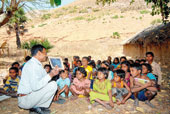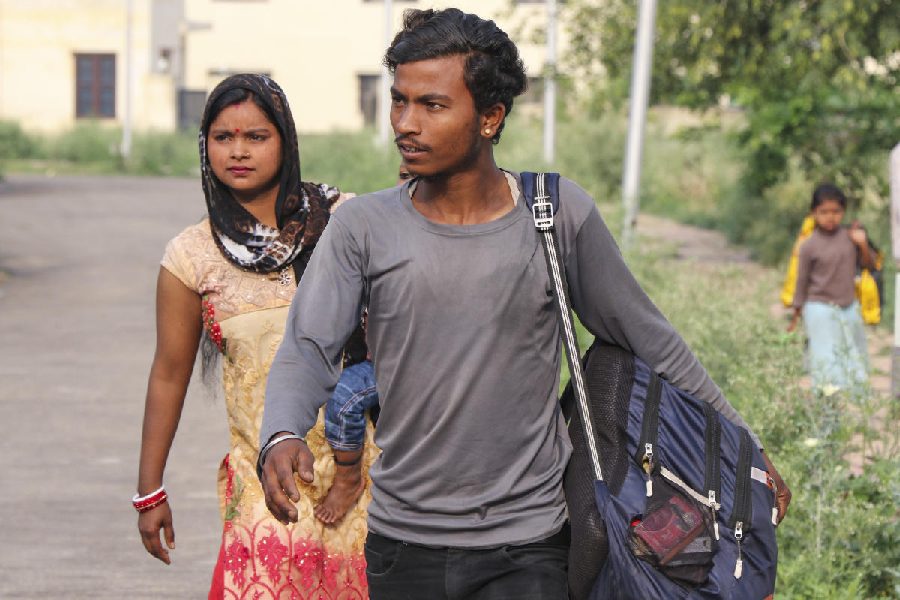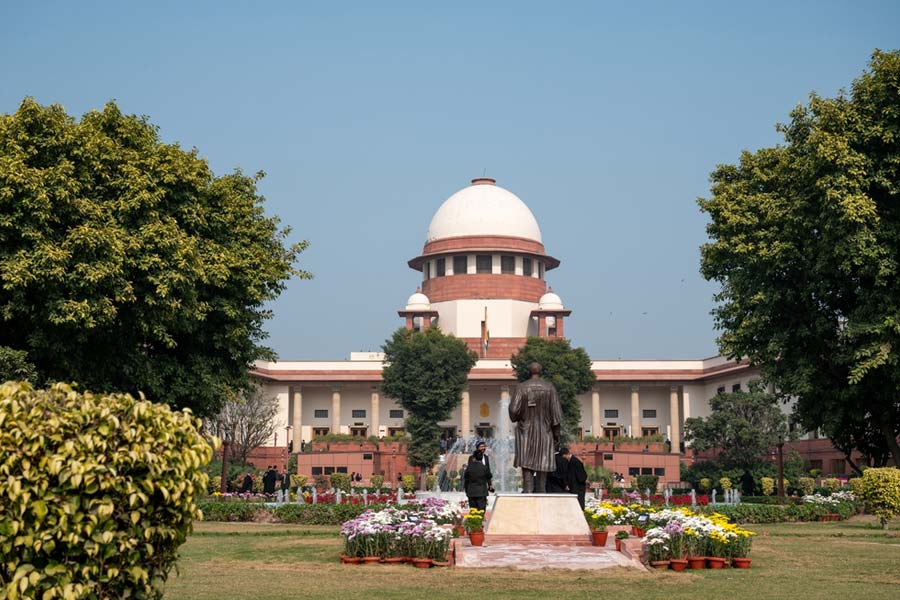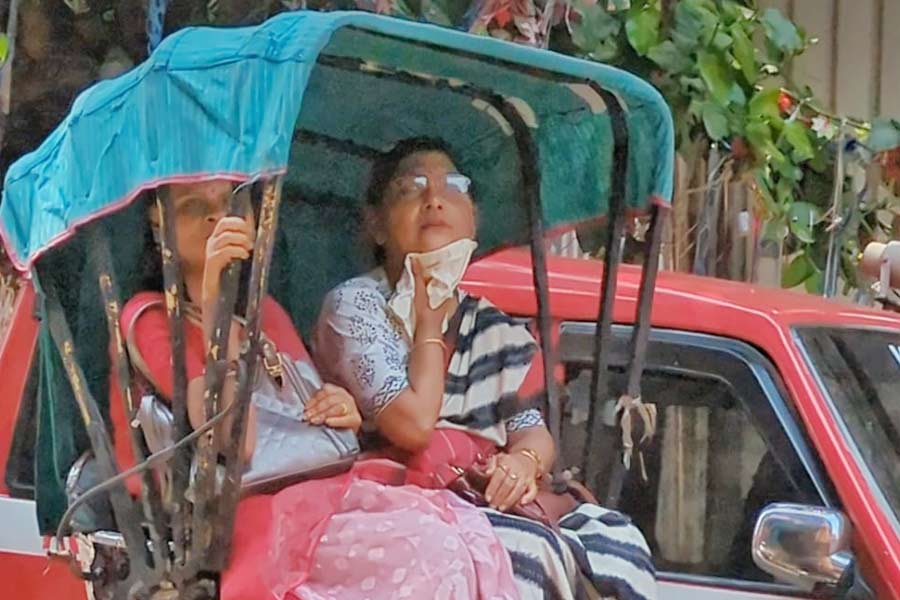 |
| Vishwanth Prasad Vishwakarma takes a class at Tapasvi Nagar. Picture by Deepak Kumar |
Gaya, April 28: When Vishwanath Prasad Vishwakarma used to pass though villages in Atri block of Gaya district, parents would ask their children to get into their homes.
That was 10 years ago. Now, when the children of Tapasvi Nagar, Gopal Nagar and Sundar Vaan — three villages around 110km south of Patna — hear Vishwakarma’s bike coming, they run out to greet him with cries of “Guruji!”
The transformation from the Gabbar Singh-like figure into a benevolent messiah took place over a decade.
Most of the residents of these Naxalite-hit villages, with a combined population of 7,000, are from the Mahadalit community. Many of them are engaged as daily wagers. The 55-year-old, who bears the name of the Hindu architect god, has changed the world for their children by bringing the light of education to them.
Vishwakarma, with two MAs (in economics and political sciences) from Magadh University, is the principal of the Government High School in the Jethain panchayat.
The school was closed for 10 years because no one would come there, fearing the Maoists. Vishwakarma re-opened the school in 2003 with 32 students. Now, it has 450 students and 24 teaching and non-teaching staff.
When classes get over at 3.30pm, Vishwakarma mounts his motorbike and travels to the three villages, each separated by 4km. There, he teaches children aged between five and 10 for an hour.
The Telegraph accompanied the brave teacher to Tapasvi Nagar earlier this month. The road leading to it has sparse traffic. Around 2km away is a shooting range of the Special Task Force (STF). When the STF personnel practise, the traffic is stopped because the range extends across the road.
When Vishwakarma reached the village, around 50 children with slates, chalk and books on alphabets greeted him. The sound of Vishwakarma’s bike, having “mobile school” written on it, served as their school bell.
They sat down in the shade of a hill on the instruction of their “Guruji” and began to study. As the class progressed, the parents of the students stood in the vicinity, observing what was going on.
One of them, Jhalan Manjhi, said: “We never thought that our children would ever get the opportunity to study or even see a book.”
The daily wager added: “We want our children to have better lives than we have — breaking stones in the mountain. We want our children to be educated so that they can earn a better livelihood.”
Standing at a distance, perhaps Jhalan and others like him also learn a few things.
After the class got over, Vishwakarma said: “I have to teach them (the children) very simply, using their dialect, so that they can understand what I’m saying.”
One of his students, 10-year-old Vikram Manjhi, said: “I didn’t know how to write my name six months ago. Now, I can not only do that but also understand the meaning of English words like cat, dog, ox and aeroplane.”
Vishwakarma said once the children are literate, he teaches them from a special syllabus, which makes them understand family values, hospitals, railway stations, banks, post offices, police stations, fire brigades and also how to get different government certificates.
“Knowledge of these things is essential. The children should know about their rights and duties,” said Vishwakarma.
One of his more successful students is Rajauli MLA Kanhaiya Kumar’s brother-in-law Dilip Rajvanshi (45), who began as one of the pupils at Tapasvi Nagar village. This year, he has passed Class X from Vishwakarma’s school.
The teacher sponsors his entire philosophical project from his own pocket. Vishwakarma is not new to it though. Since 1991, he used to teach children of sex workers and rickshawpullers as well as homeless minors at Gaya railway station.










